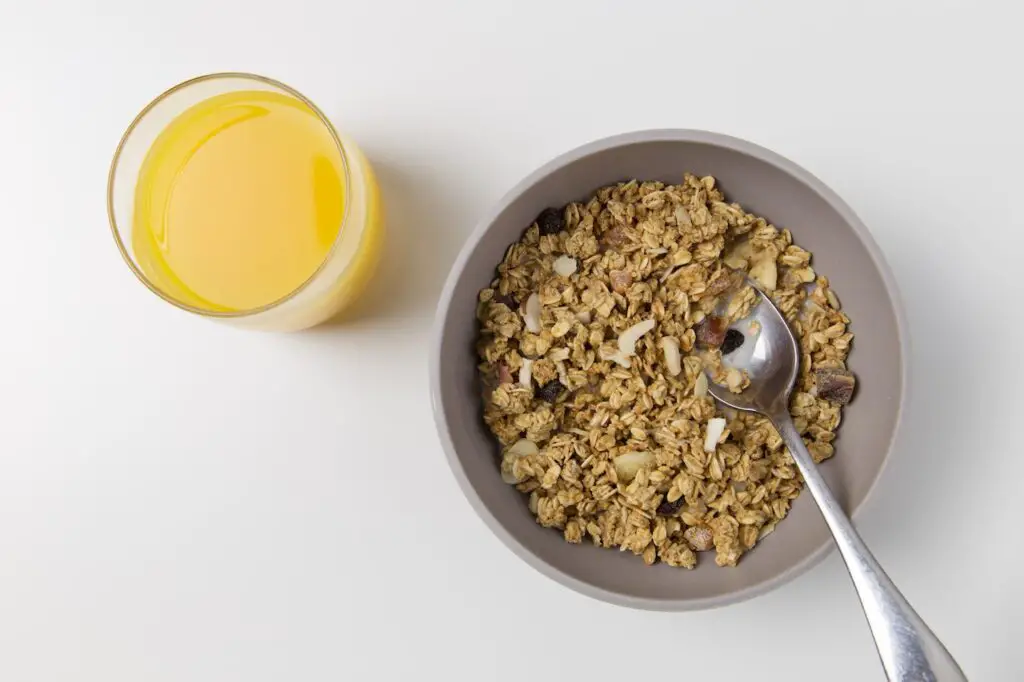Are you looking for natural ways to improve your digestive health? Incorporating fiber supplements into your diet can be a simple yet effective solution. Fiber is an essential nutrient that plays a crucial role in maintaining a healthy digestive system. In this article, we will explore the incredible benefits of fiber supplements and how they can boost your digestive health naturally.
Maintaining a healthy digestive system is essential for overall well-being. Poor digestion can lead to various health issues and discomfort. While a balanced diet rich in fruits, vegetables, and whole grains is a great way to obtain dietary fiber, some individuals may find it challenging to meet their daily fiber requirements. This is where fiber supplements can be incredibly beneficial.
Understanding Fiber and its Importance
Fiber is a crucial component of a healthy diet and plays a vital role in maintaining optimal digestive health. Fiber refers to the indigestible part of plant-based foods that passes through the digestive system relatively intact. Unlike other nutrients, fiber doesn’t break down or get absorbed by the body. Instead, it provides numerous benefits along the digestive tract.
Fiber is categorized into two types: soluble fiber and insoluble fiber. Soluble fiber dissolves in water and forms a gel-like substance in the digestive system. It can be found in foods such as oats, legumes, fruits, and vegetables. On the other hand, insoluble fiber does not dissolve in water and adds bulk to the stool. Foods like whole grains, nuts, and seeds are rich sources of insoluble fiber.
The importance of fiber lies in its ability to support a healthy digestive system. Firstly, fiber adds bulk to the stool, promoting regular bowel movements and preventing constipation. By enhancing the movement of waste through the digestive tract, fiber helps maintain a healthy gastrointestinal system.
Furthermore, fiber acts as a prebiotic, providing nourishment to the beneficial bacteria in the gut. These probiotics play a crucial role in maintaining a balanced gut microbiome, which is essential for optimal digestion and overall well-being. Fiber helps create a favorable environment for probiotics to thrive, supporting healthy gut flora.
Related: How MCT Oil Supplements Can Support Weight Loss and Brain Function

Types of Fiber
There are two main types of fiber: soluble fiber and insoluble fiber.
Soluble Fiber
Soluble fiber is a type of dietary fiber that dissolves in water and forms a gel-like substance in the digestive system. This unique property allows soluble fiber to play a crucial role in various aspects of health. When consumed, soluble fiber undergoes fermentation in the colon, where it is broken down by beneficial bacteria.
One of the primary benefits of soluble fiber is its ability to regulate blood sugar levels. The gel-like substance formed by soluble fiber slows down the digestion and absorption of carbohydrates, preventing sudden spikes in blood glucose levels. This can be particularly beneficial for individuals with diabetes or those at risk of developing the condition.
Insoluble Fiber
Insoluble fiber is another type of dietary fiber that does not dissolve in water and adds bulk to the stool. It plays a vital role in maintaining digestive health and ensuring regular bowel movements. Insoluble fiber can be found in various plant-based foods, including whole grains, nuts, seeds, and the skins of fruits and vegetables.
One of the primary benefits of insoluble fiber is its ability to promote regularity and prevent constipation. It adds bulk to the stool, which helps stimulate the muscles in the digestive tract, aiding in the efficient movement of waste through the intestines.
Related: The Top 5 Supplements for Digestive Health
The Role of Fiber in Digestive Health
Fiber plays a crucial role in maintaining optimal digestive health. Its main role is to add bulk to the stool, promoting regular bowel movements and preventing constipation. By absorbing water and increasing the size and weight of the stool, fiber helps stimulate the muscles in the digestive tract, aiding in the smooth passage of waste through the intestines.
Additionally, fiber acts as a prebiotic, nourishing the beneficial bacteria in the gut. These probiotics play a vital role in maintaining a balanced gut microbiome, which is essential for optimal digestion and overall well-being. Fiber provides the necessary fuel for these beneficial bacteria to thrive, supporting a healthy gut environment.
Another important function of fiber is its ability to regulate bowel function. It can help soften the stool, making it easier to pass, or add bulk to loose stools, providing structure and promoting firmer bowel movements.
Benefits of Fiber Supplements
Promotes Regular Bowel Movements
One of the primary benefits of fiber supplements is their ability to promote regular bowel movements. By adding bulk to the stool, fiber supplements help prevent constipation and improve overall bowel function.
Prevents Constipation
Constipation can be uncomfortable and lead to various digestive issues. Fiber supplements, particularly those rich in insoluble fiber, can alleviate constipation by providing the necessary bulk and improving the transit time of food through the digestive system.
Supports Weight Management
Fiber supplements can be an excellent addition to a weight management plan. They promote satiety, reducing hunger cravings and preventing overeating. By adding bulk to the diet without adding extra calories, fiber supplements can aid in weight loss and weight maintenance.
Reduces the Risk of Digestive Disorders
A diet high in fiber has been associated with a reduced risk of digestive disorders such as hemorrhoids, diverticulosis, and irritable bowel syndrome (IBS). Fiber supplements can help meet the recommended daily intake and provide protection against these conditions.
Controls Blood Sugar Levels
For individuals with diabetes or pre-diabetes, fiber supplements can help control blood sugar levels. Soluble fiber slows down the absorption of sugar, preventing sudden spikes and promoting stable blood sugar levels.
Lowers Cholesterol Levels
Fiber, especially soluble fiber, can help lower cholesterol levels by reducing the absorption of cholesterol from the intestines. Regular intake of fiber supplements can contribute to maintaining healthy cholesterol levels.
Enhances Gut Health
Fiber acts as a prebiotic, nourishing the beneficial bacteria in the gut. By promoting the growth of probiotics, fiber supplements contribute to a healthy gut microbiome, which is essential for optimal digestion and overall well-being.
Provides Satiety
Fiber-rich foods and supplements create a feeling of fullness, which can help prevent overeating and unnecessary snacking. By promoting satiety, fiber supplements support healthy eating habits and weight management.
Boosts Overall Well-being
The benefits of fiber supplements extend beyond digestive health. A healthy digestive system positively impacts overall well-being, including increased energy levels, improved mood, and enhanced nutrient absorption.
Related: How N-Acetyl Cysteine (NAC) Supplements Can Support Liver Health

How to Choose the Right Fiber Supplement
When selecting a fiber supplement, consider the following factors:
Consider Your Dietary Needs
Assess your dietary needs and determine the type of fiber that suits you best. If you require more soluble fiber, opt for supplements that are rich in this type. Similarly, if you need more insoluble fiber, choose supplements that provide higher amounts of insoluble fiber.
Read Labels Carefully
Pay attention to the nutritional information on the supplement labels. Look for supplements with minimal added sugars or artificial ingredients. Opt for products that are made from natural sources and have a high fiber content per serving.
Start with Small Doses
If you are new to fiber supplements, start with a small dosage and gradually increase it over time. This allows your body to adjust to the increased fiber intake and reduces the likelihood of digestive discomfort.
Increase Water Intake
Fiber supplements work best when consumed with an adequate amount of water. Drink plenty of fluids throughout the day to ensure the fiber supplements can swell and add bulk to the stool effectively.
Tips for Incorporating Fiber Supplements into Your Diet
Here are some helpful tips for incorporating fiber supplements into your daily diet:
Gradually Increase Fiber Intake
To prevent digestive discomfort, gradually increase your fiber intake. Start with a low dosage and gradually work your way up to the recommended daily amount.
Diversify Your Fiber Sources
While fiber supplements are convenient, it’s essential to diversify your fiber sources. Include a variety of high-fiber foods such as fruits, vegetables, whole grains, legumes, andnuts in your diet to ensure a well-rounded fiber intake.
Stay Hydrated
Remember to drink an adequate amount of water throughout the day when consuming fiber supplements. Sufficient hydration helps the fiber work effectively and prevents potential digestive issues.
Listen to Your Body
Every individual’s digestive system is unique. Pay attention to how your body reacts to fiber supplements and make adjustments accordingly. If you experience any discomfort or adverse effects, consult a healthcare professional.
Seek Professional Advice
If you have specific dietary concerns or pre-existing medical conditions, it’s advisable to consult a healthcare professional or a registered dietitian before incorporating fiber supplements into your diet. They can provide personalized recommendations based on your individual needs.
Potential Side Effects of Fiber Supplements
While fiber supplements offer numerous benefits, it’s important to be aware of potential side effects, which may include:
Bloating and Gas
Increased fiber intake can sometimes cause bloating and gas, especially when your body is not accustomed to high fiber levels. Gradually increasing fiber intake and ensuring adequate hydration can help alleviate these symptoms.
Abdominal Discomfort
Some individuals may experience abdominal discomfort or cramping when consuming fiber supplements. If this persists or becomes severe, consult a healthcare professional.
Diarrhea or Constipation
In certain cases, consuming excessive amounts of fiber supplements without adequate hydration can lead to diarrhea or constipation. Finding the right balance and ensuring proper hydration is key.
Allergic Reactions
Although rare, some individuals may be allergic to certain types of fiber supplements. If you experience symptoms such as itching, hives, or difficulty breathing after taking a fiber supplement, discontinue use and seek medical attention.
Conclusion
Incorporating fiber supplements into your daily routine can provide significant benefits for your digestive health. From promoting regular bowel movements to supporting weight management and reducing the risk of digestive disorders, fiber supplements offer a convenient and effective way to boost your overall well-being. Remember to choose the right supplement for your needs, gradually increase your intake, and listen to your body’s signals. With proper usage and a balanced diet, you can enhance your digestive health naturally and enjoy the incredible benefits of fiber supplements.
FAQs (Frequently Asked Questions)
Can fiber supplements cause weight gain?
No, fiber supplements themselves do not cause weight gain. In fact, they can support weight management by promoting satiety and preventing overeating.
How long does it take for fiber supplements to work?
The time it takes for fiber supplements to work can vary depending on the individual and their dietary habits. Generally, it may take a few days to a week to notice the effects on bowel regularity and overall digestion.
Can I take fiber supplements with other medications?
It’s advisable to consult a healthcare professional or pharmacist before taking fiber supplements with other medications. They can provide guidance on potential interactions or any specific considerations.
Are there any dietary restrictions when taking fiber supplements?
In most cases, there are no specific dietary restrictions when taking fiber supplements. However, it’s important to maintain a balanced diet and stay hydrated for optimal results.
Can children take fiber supplements?
Children can take fiber supplements, but it’s recommended to consult a pediatrician before introducing them to a child’s diet. The dosage and type of fiber supplement may vary based on the child’s age and individual needs.

